A Presentation and Workshop on Botanical Archives and Embodied Knowledge by Jonn Gale
London-based ethnobotanist Jonn Gale, whose practice investigates botanical collections and their cultural significance, recently concluded a 12-week residency as part of her PhD placement, primarily based at the G.A.S. Farm House in Ikiṣẹ. During her time there, Jonn focused on reimagining botanical archiving, designing and facilitating community-centred workshops, including Understanding Plants: Botany and Herbarium Practice, which she hosted for students from St. John’s Primary School, Ikiṣẹ, while contributing to ongoing knowledge-sharing initiatives. A central aspect of her research involved engaging with local plant growers, healers, and other knowledge-keepers. Through these interactions, she documented traditional agricultural practices, herbal knowledge, and biocultural conservation efforts, laying the foundation for what she calls a 'living botanical archive'.
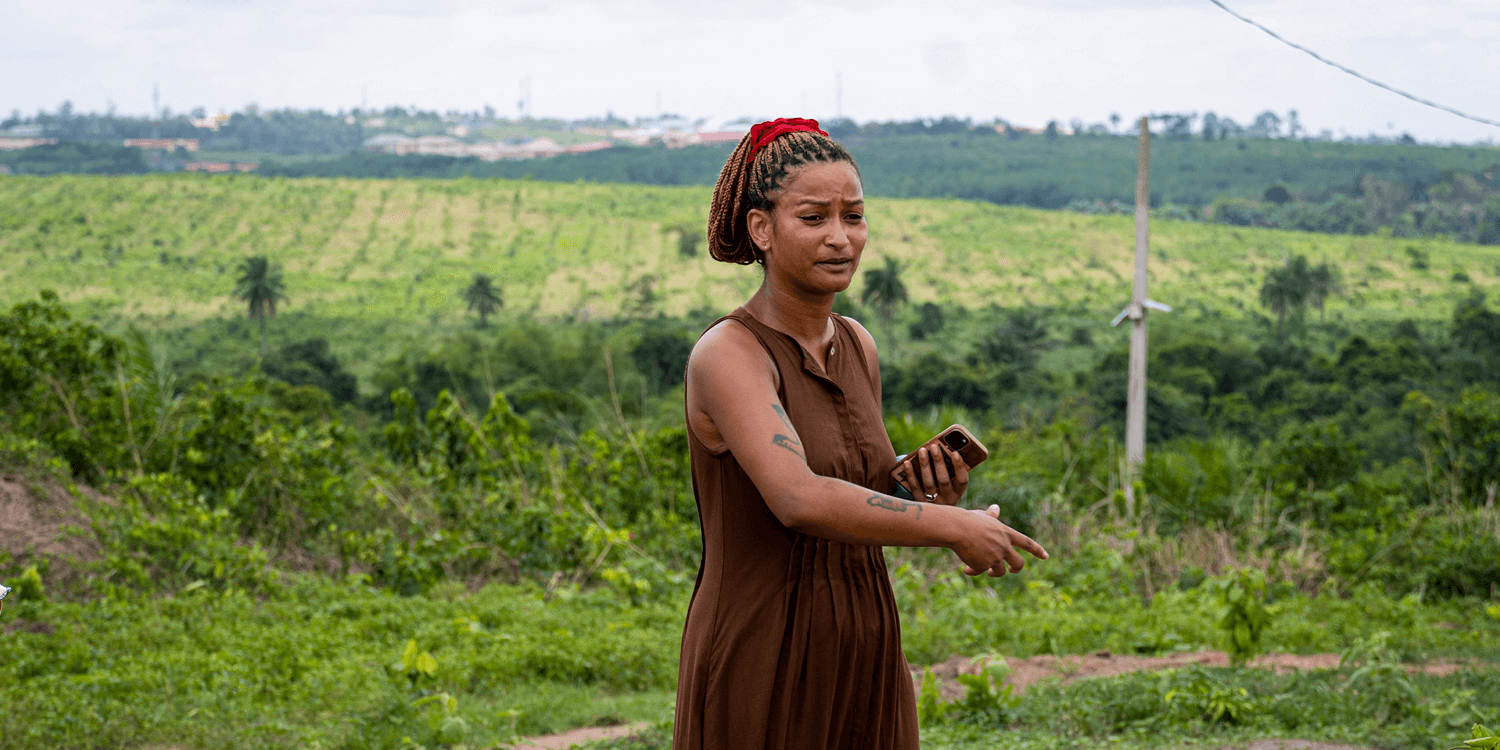
As her residency concluded, Jonn hosted Spiral Margins/Ecotonal Memories on April 17th, 2025, at the G.A.S. Farm House in Ikiṣẹ, bringing together fellow residents, G.A.S. staff, and members of the local community she had engaged with throughout her stay. The event, which centred around a botanical garden she cultivated during her time at the Farm House, marked the culmination of her fieldwork. It was shaped by the concept of ecotones, which are areas of transition between communities and ecosystems, and has served as a guiding metaphor for her effort to bridge scientific and indigenous knowledge systems into a single, living archive.
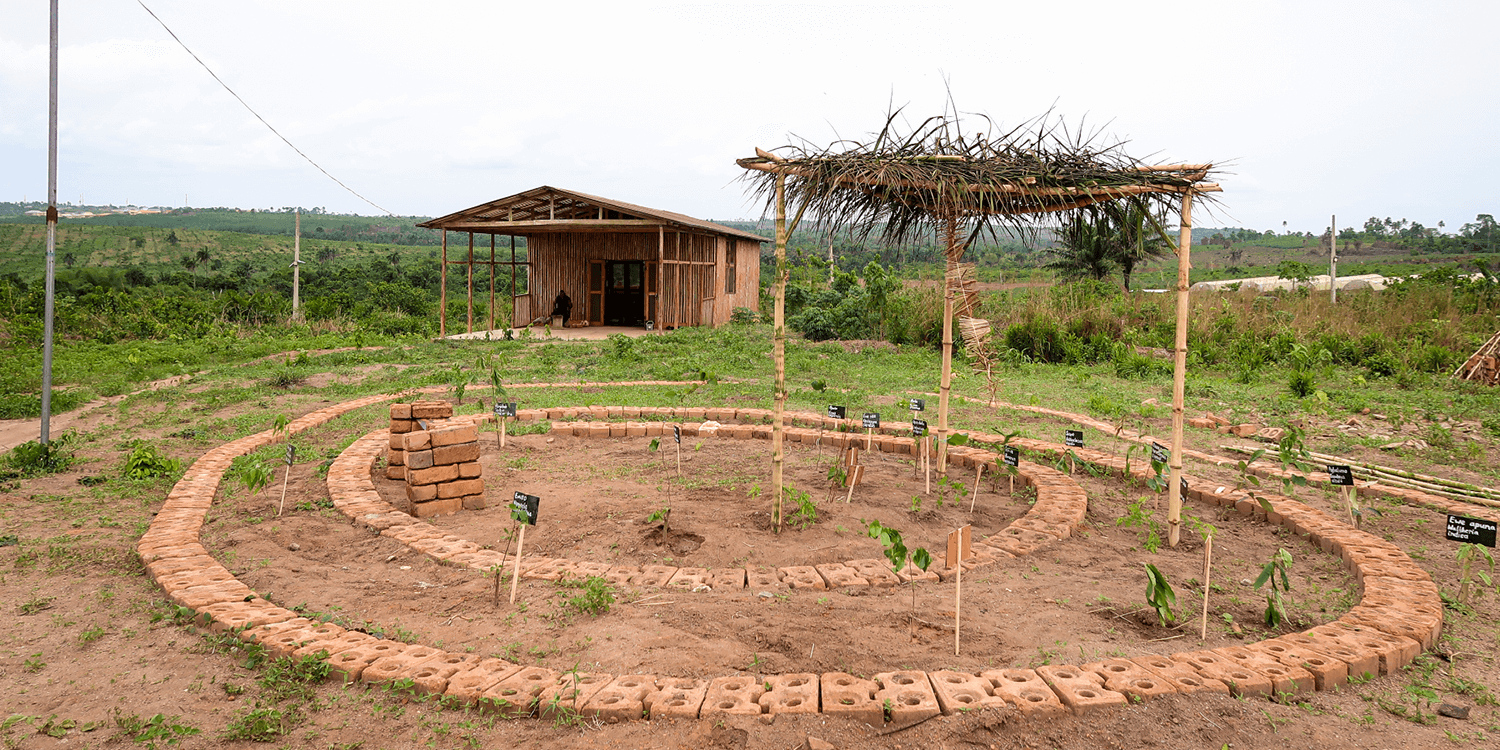
In her garden, Jonn embraced the “spiral” as both a personal and symbolic form. Inspired by Of Water and the Spirit by Malidoma Somé, she was drawn to the spiral’s associations with journey, transformation, and return. The book’s exploration of displacement, reconnection, and spiritual awakening deeply resonated with her, mirroring her own experiences. She physically shaped a spiral into the soil, embedding this layered symbolism into the landscape itself. For Jonn, the residency extended beyond academic research; it became a process of healing and reconnection, particularly with her grandmother, as part of her ancestry traces back to Edo State, Nigeria. She described the experience as a return to “space and dust,” an elemental search for grounding, memory, and wholeness.
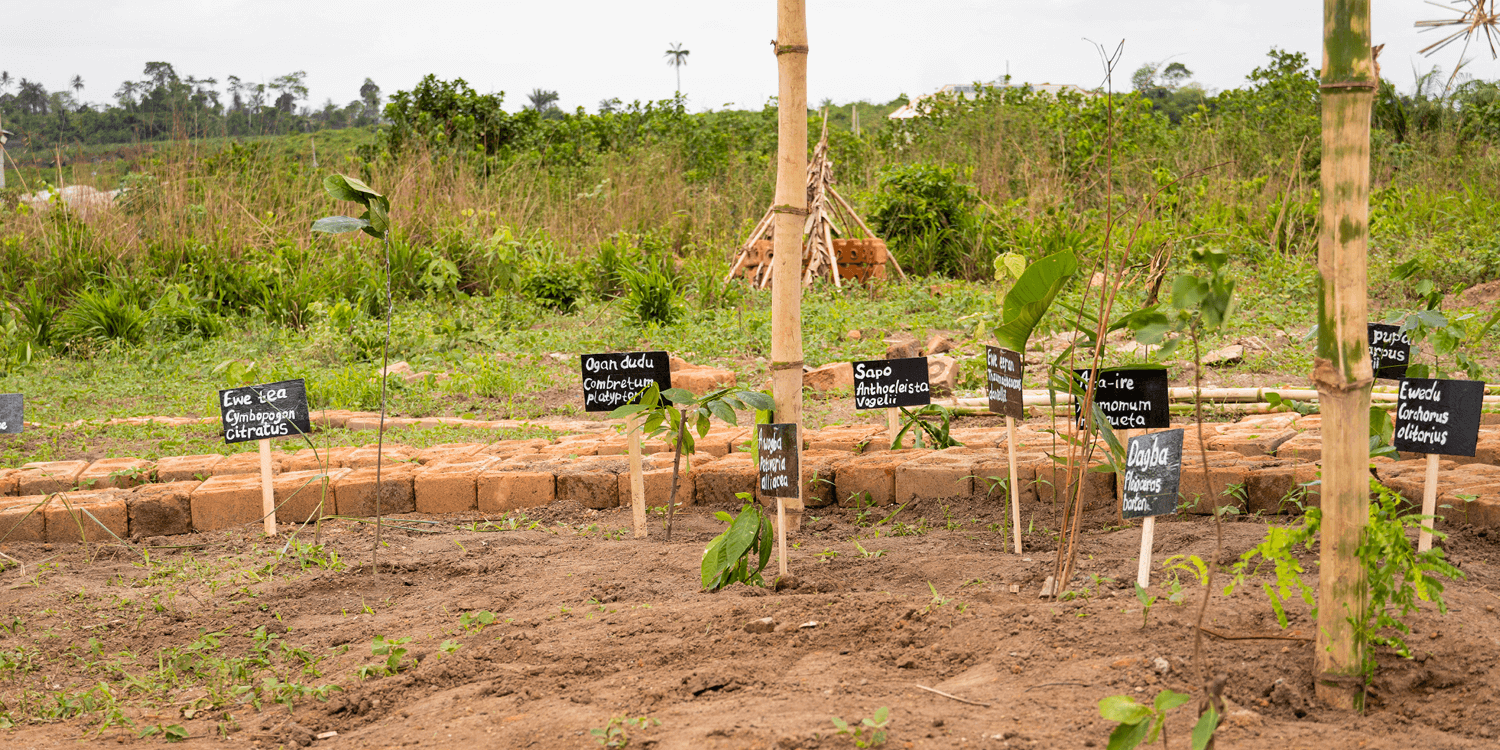
During her presentation, Jonn offered a glimpse into the relationships and stories gathered during her residency. She spoke about working closely with herbalists, artists, elders, children, chefs, and farmers, highlighting the collaborative nature of her research. Her garden, cultivated with care, became a living record of these encounters, featuring medicinal plants labelled in both Yoruba and scientific names. Many of the specimens were sourced through community exchange, such as visits to local homes (including Yinka Shonibare CBE RA's mother’s house in Ilupeju), others were purchased from IITA, and several were already growing wild around the farm. A simple bench within the garden invited reflection, anchoring the archive in both memory and presence.
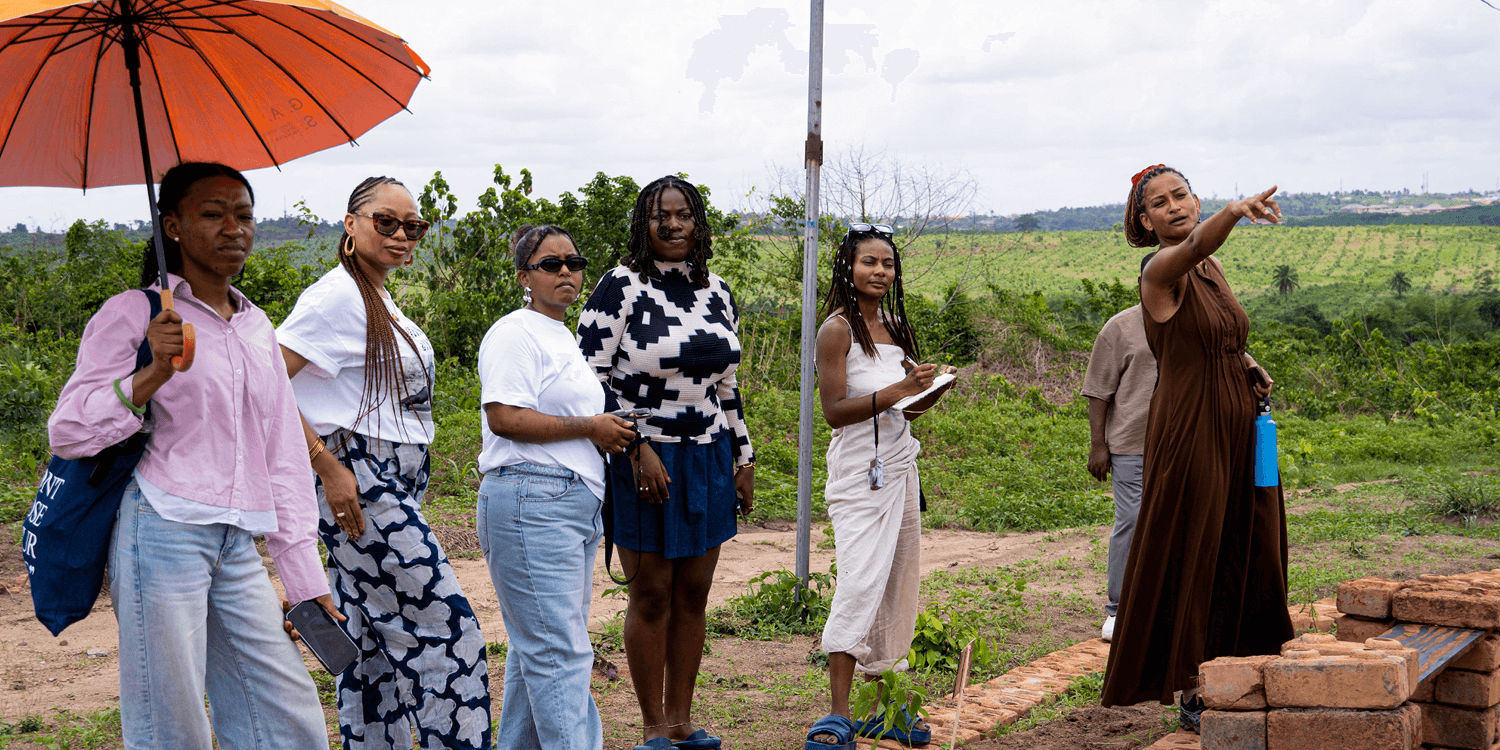
Following the presentation, Jonn led visitors on a guided walk through the farm, joined by Mrs Monsurat Giwa, also known as Alhaja, the G.A.S. Farm House supervisor, who had played a key role in plant identification throughout her residency. Together, they invited guests to engage directly with the plants already growing around the farm, touching leaves, smelling herbs, and learning about their various uses. Jonn emphasised that the living archive is not meant to be passively observed but actively experienced. Plants like Vernonia Amygdalina, also known as bitter leaf, traditionally used in Nigerian soups and widely known in traditional medicine for aiding digestion or treating fever, exemplify the blurred boundaries between nourishment and healing. The walk reinforced the idea that these plants are not merely botanical specimens but vital elements of daily life, carrying deep cultural knowledge and meaning.
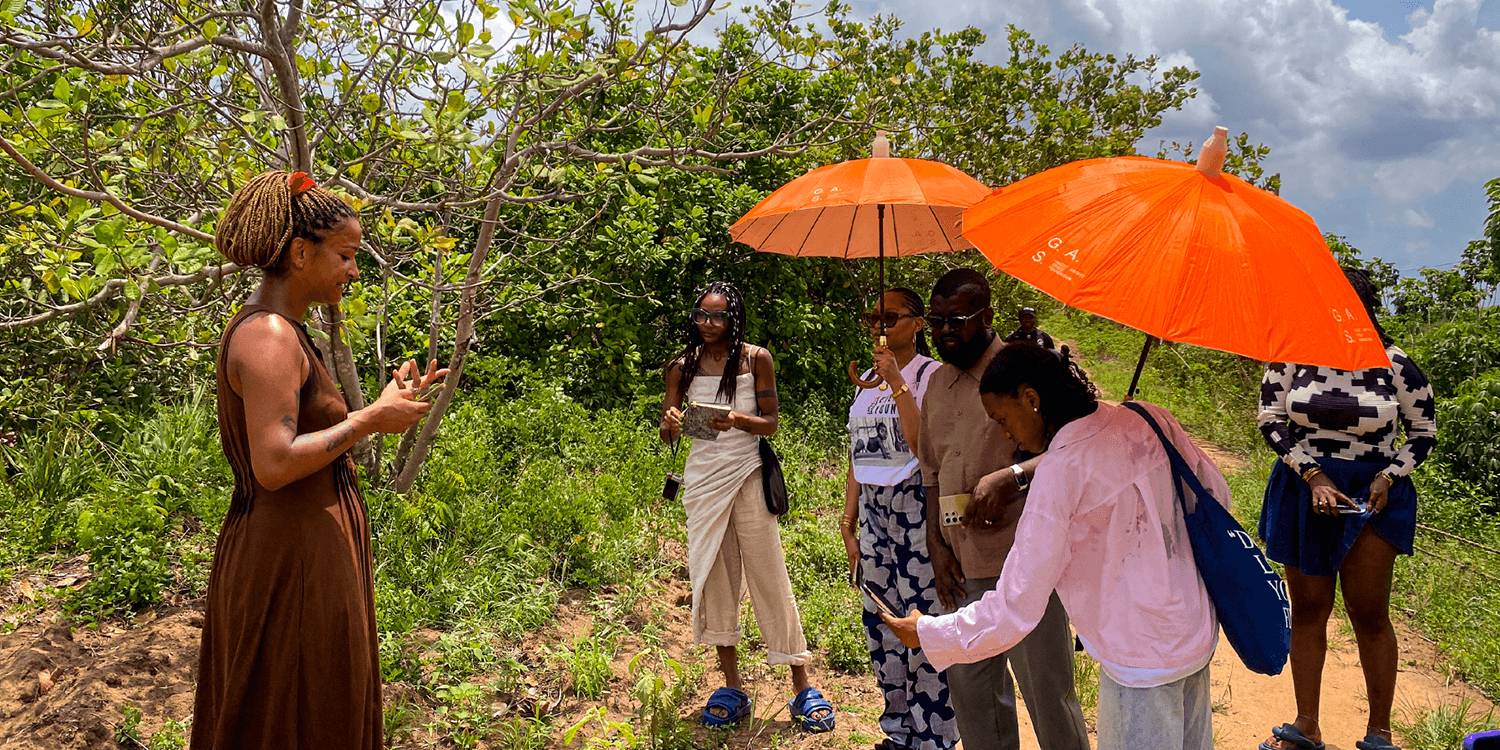
The event concluded with a collaborative seed-sowing session, where guests were invited to plant seeds in plastic sandbags prepared in advance. This final act became a moment of ritual, of grounding knowledge in soil, and collectively tending to futures rooted in the past. Through the act of planting, participants enacted care, continuity, and the passing down of embodied knowledge.
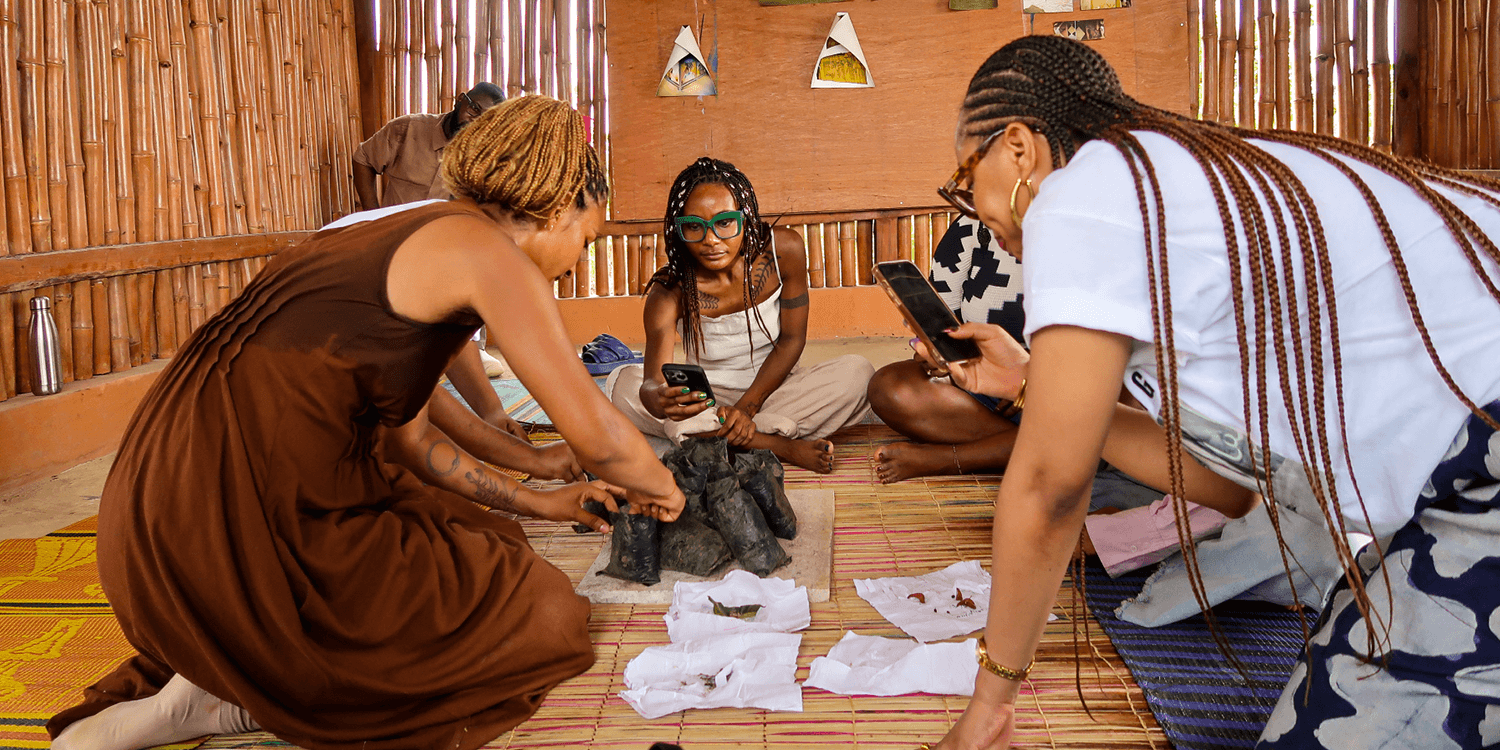
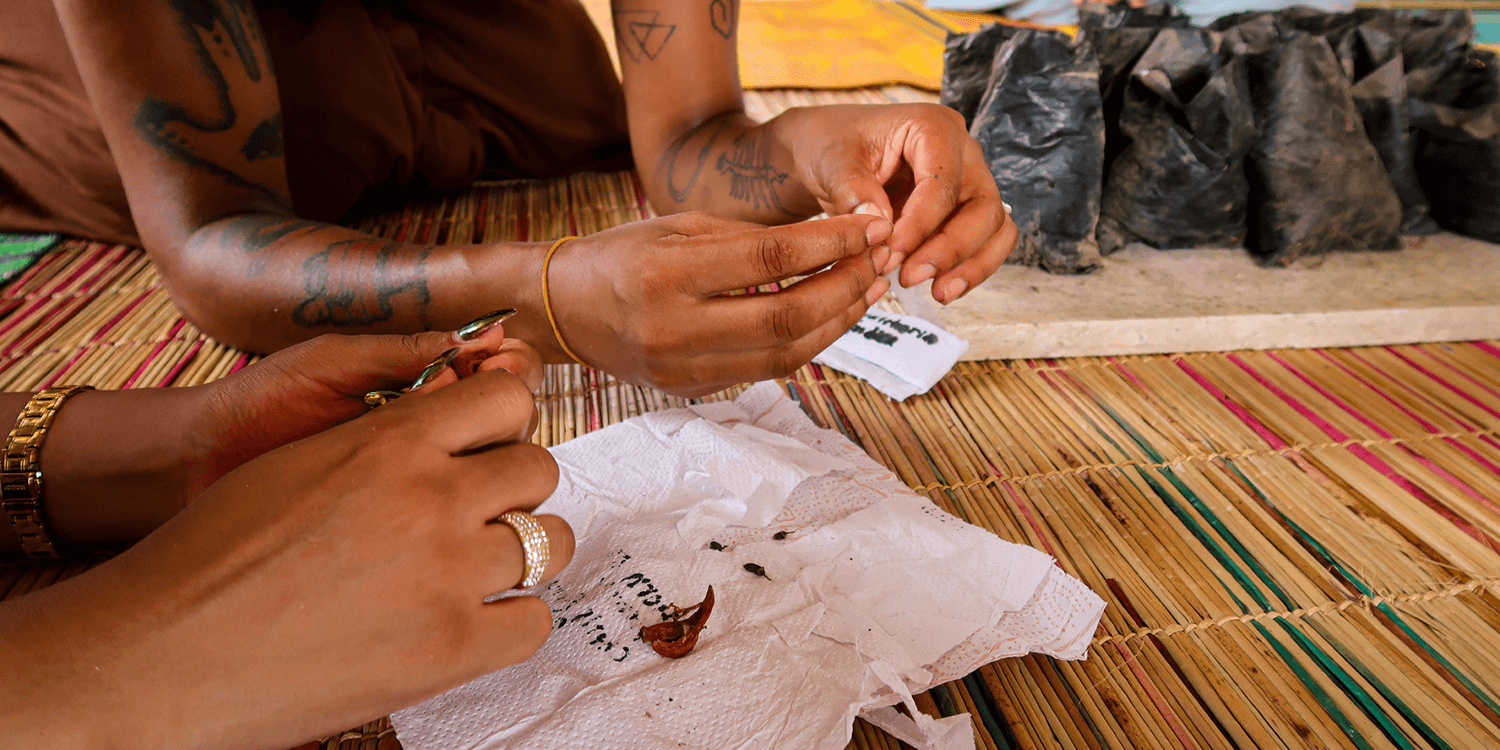
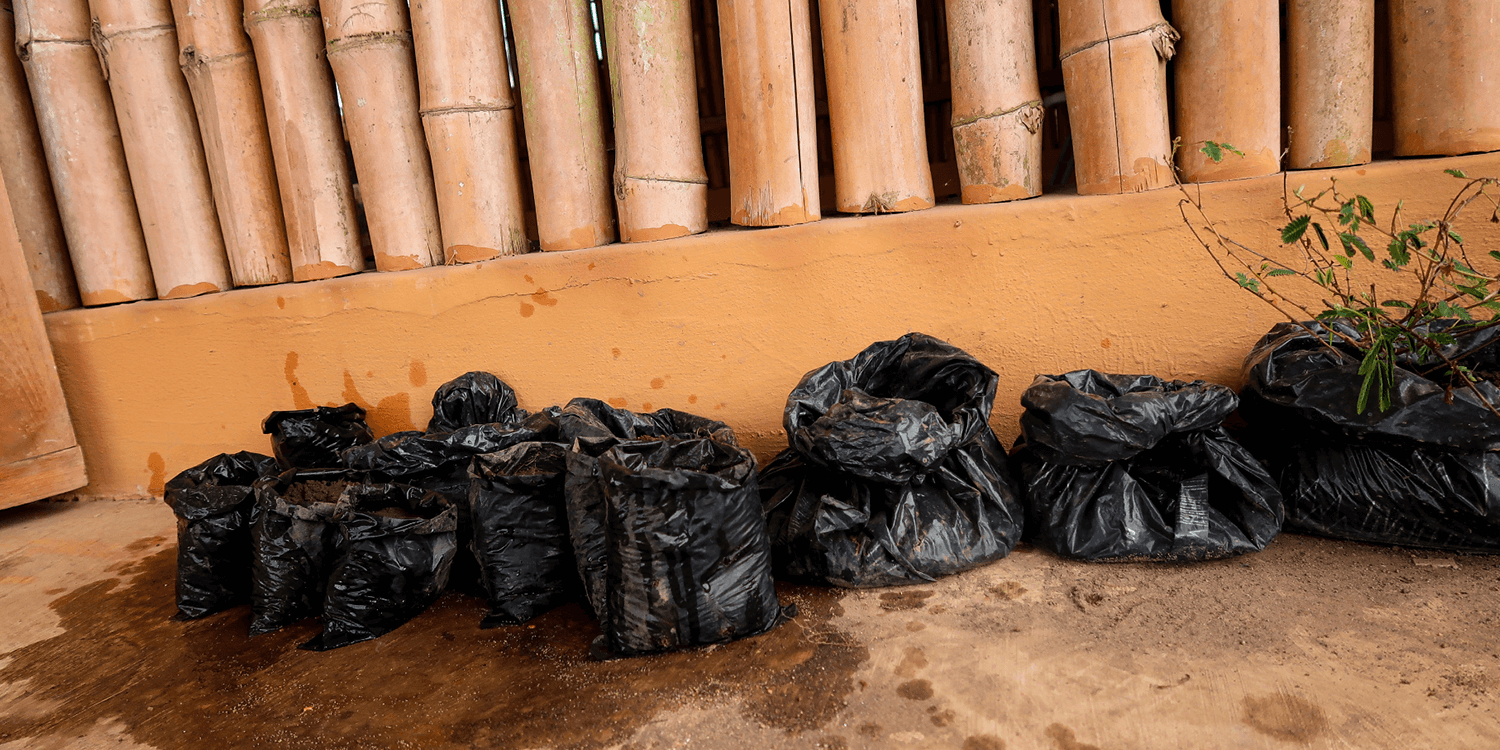
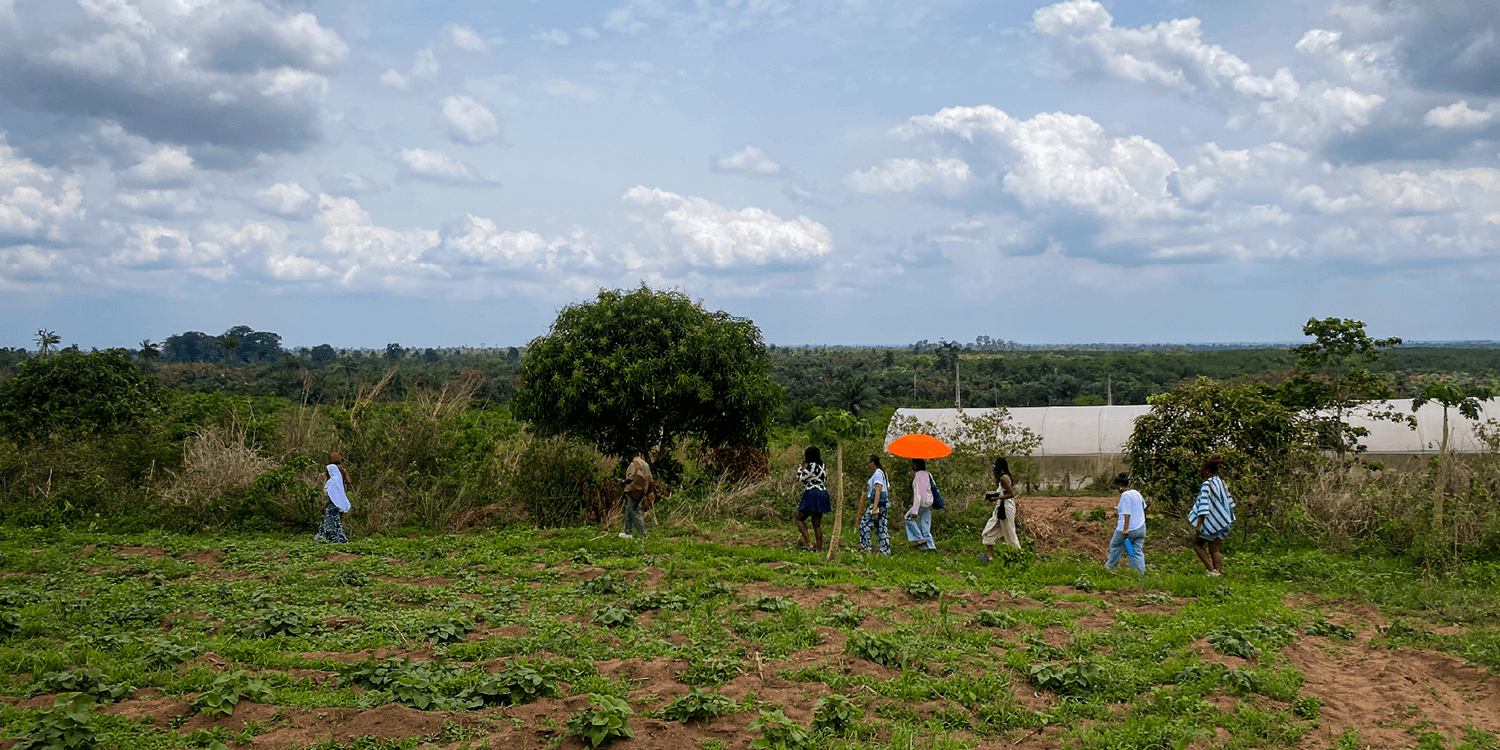
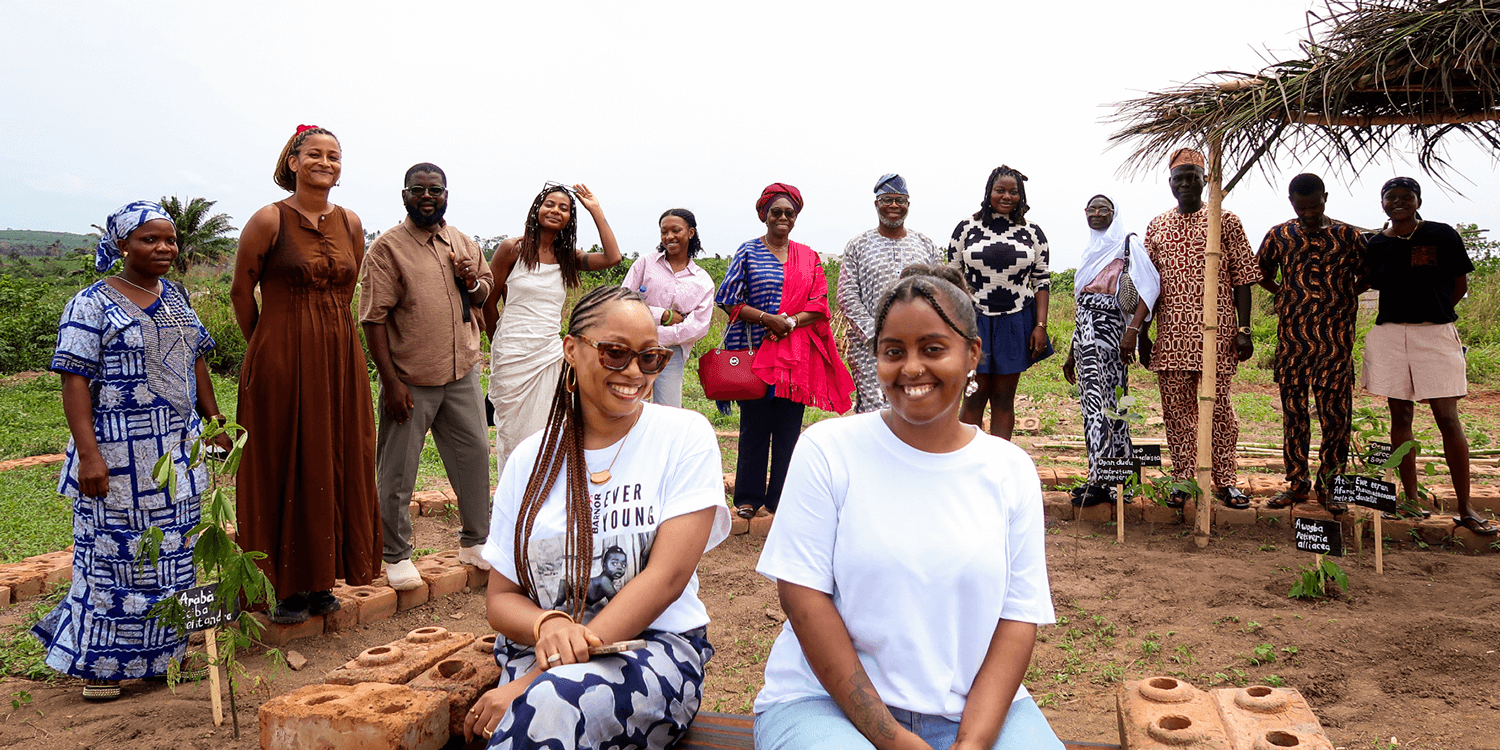
Event Details
Date: 17th April, 2025
Time: 11:00am - 2:00pm
Location: G.A.S. Farm House, Ecology Green Farm, Yinka Shonibare CBE Street, Ikiṣẹ, Off Omu ljebu Road, liebu.
About the Facilitator
Jonn Gale
JONN GALE is a London-based ethnobotanist working across botanical collections. Her work combines speculative analysis of historical and archival material, ethnobotanical research, and sensory-focused visual ethnography as a means of generating more multiverse, relational, process-focused, and horizontal botanical archival research practices. Her practice centers on nonlinearity, multi-species livability, and the agency, endurance, and affective temporalities of botanical objects as historical actors capable of narrating alternative histories. She is currently undertaking a practice-led, AHRC/CHASE-funded collaborative doctorate at Birkbeck, UOL, and the Linnean Society of London, investigating the contributions of Black naturalists to eighteenth- and nineteenth-century natural knowledge. Her research involves the study of botanical specimens and manuscripts held at the Linnean Society, identifying and tracing hidden actors, mapping knowledge networks, and developing a new decolonial approach for recovering and sharing information from this archive.
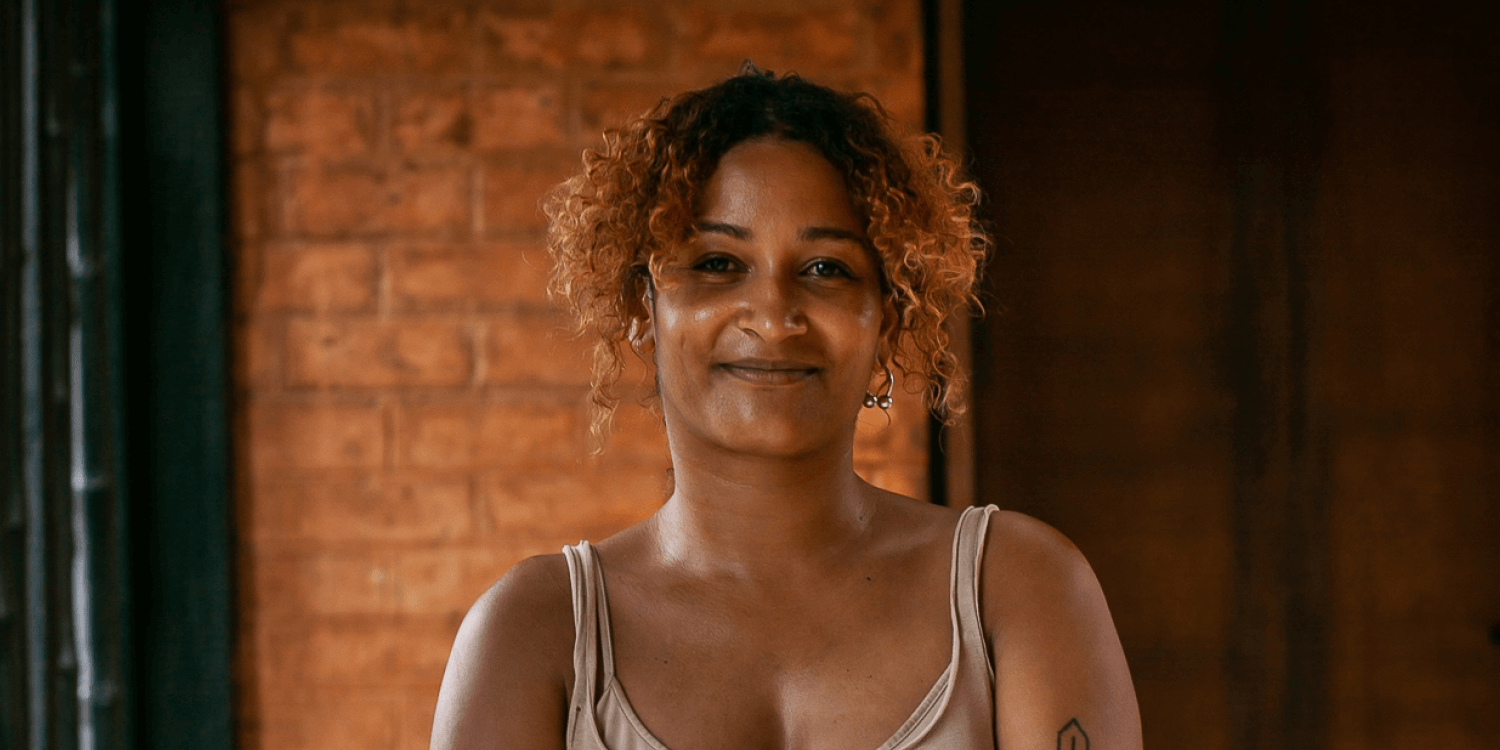
Jonn Gale's residency is supported by CHASE and G.A.S. Foundation.
